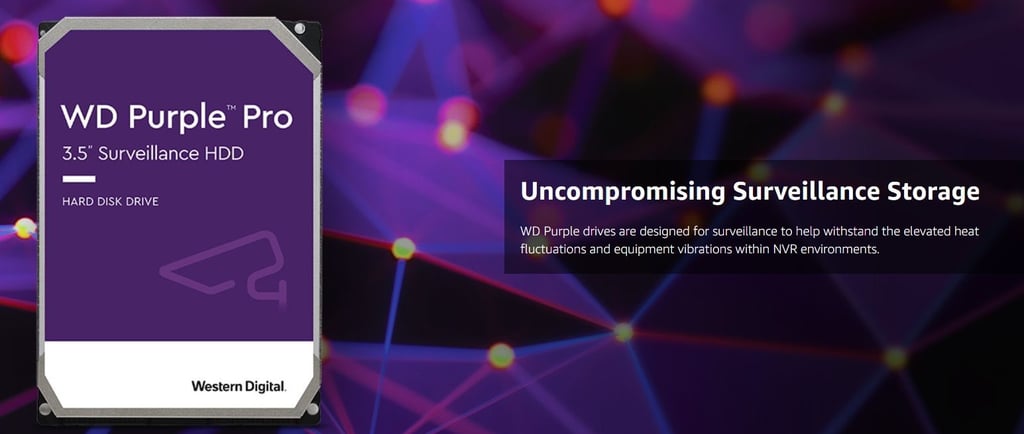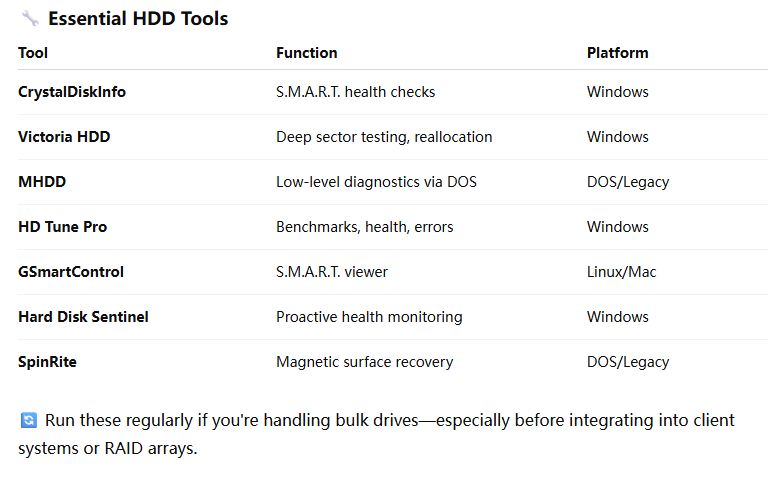Mastering the Modern Hard Drive: 2025’s Ultimate Guide to Buying, Troubleshooting & Optimizing HDDs
📌 Seller: Leon Wholesale 📞 WhatsApp: +8618136773114 📧 Email: leonxu0317@gmail.com
ELECTRONICS
8/7/20256 min read


Table of Contents
Introduction: The Relevance of HDDs in 2025
Understanding HDD Types & Classes
Choosing Between HDD & SSD
Key HDD Specifications to Watch
Top HDD Models to Consider in 2025
Enterprise vs Consumer HDDs
Common HDD Problems and DIY Troubleshooting
Tools for HDD Health Monitoring
HDD Performance Optimization Tips
Safe Data Recovery from HDD Failures
Buying HDDs in Bulk: OEM & Wholesale Tips
Environmental Factors Affecting HDD Longevity
HDD Maintenance Best Practices
HDDs for Surveillance, Gaming, and NAS
Future of Hard Drives: Is HDD Dead or Reinvented?
Conclusion & Contact Info
Introduction: The Relevance of HDDs in 2025
In an era dominated by blazing-fast NVMe SSDs and cloud-centric workflows, one might prematurely dismiss the humble hard disk drive (HDD) as a relic. But the truth? HDDs are thriving in 2025, especially in enterprise storage, surveillance, gaming, and massive data archiving.
The question isn’t whether HDDs are still useful—it’s how to choose the right one, how to keep it running at peak performance, and what to do when it inevitably acts up.
This ultimate guide is not just a buying resource. It’s a battle plan—combining technical depth, real-world practicality, and smart troubleshooting that only seasoned system integrators and IT pros truly understand.
Understanding HDD Types & Classes
To make informed decisions, you need to recognize the spectrum of HDD variants on the market. HDDs aren’t all created equal. Let’s break it down:
Desktop Drives (Consumer) – Designed for personal PCs. These usually run 8–10 hours a day, not built for 24/7 operation.
Enterprise Drives – Like the Seagate Exos X24 or WD Gold series, built for 24/7, high-vibration, multi-drive environments.
NAS Drives – Western Digital Red Plus and Red Pro dominate here, optimized for RAID environments and heat control.
Surveillance Drives – Think WD Purple or Seagate SkyHawk—tuned for high write loads from IP camera systems.
Gaming Drives – WD Black offers enhanced cache and performance for faster load times.
Each class has a purpose—and using the wrong one can significantly reduce your system’s stability.
Choosing Between HDD & SSD
While SSDs dominate in speed, HDDs reign supreme in cost-per-terabyte and long-term archiving.
Use SSDs for:
Boot drives
Application/game launch speed
Small, high-frequency access data
Use HDDs for:
Mass media storage
Surveillance footage archiving
NAS backups
Cold storage for compliance and logs
A modern setup often pairs an SSD boot drive with HDD storage—a hybrid solution balancing speed and volume.
Key HDD Specifications to Watch
Spec sheets can be intimidating—filled with acronyms like “512e,” “MTBF,” and “SMR.” Here’s what matters:
Capacity: Obvious but crucial. From 1TB to 24TB+ today.
Interface: SATA (6Gb/s) vs SAS (12Gb/s or higher)
Cache: 64MB to 512MB—more cache means better performance
RPM: 5400, 7200, or 10,000—higher RPM = faster read/write
Form Factor: 3.5” standard for desktops and servers
MTBF (Mean Time Between Failures): 1–2.5 million hours is typical for enterprise
Workload Rating: How much data it’s built to handle annually (in TB/year)
For example, the WD Gold 24TB WD241KRYZ offers enterprise-grade 7200RPM, 512MB cache, and a 550TB/year workload rating—ideal for heavy-duty deployment.
Top HDD Models to Consider in 2025
Here are some standout hard drives in the current market:
Seagate Exos X24 (ST24000NM000H) – Enterprise 24TB 7200RPM SATA with 512e, ideal for hyperscale and data centers.
WD Gold Series – Ranges from 14TB to 24TB, made for enterprise-grade reliability.
HGST Ultrastar DC HC570 (0F48052) – 22TB SAS, excellent for data centers.
WD Red Pro NAS Drives – From 10TB to 22TB, great for Synology/QNAP setups.
WD Black Gaming Drives – High cache, high RPM for performance gaming setups.
SanDisk Desk Drive 4TB & 8TB – External, fast and stylish solutions for desktops.
Choosing from Leon Wholesale’s inventory, you can easily find high-grade units in bulk with local stock support from Shenzhen or Hong Kong.
Enterprise vs Consumer HDDs: What’s the Real Difference?
Let’s clear up a myth: Enterprise drives aren’t just overpriced versions of consumer models. They’re entirely different beasts built for mission-critical environments.
💼 Enterprise HDDs
24/7 operation with high durability
Optimized for multi-drive vibration, hot-swapping, and RAID systems
Higher workload ratings (often 550TB/year or more)
Extended warranty periods (up to 5 years)
Usually SAS or SATA with dual ports
Include rotational vibration sensors, advanced error recovery, and better firmware
🧑💻 Consumer HDDs
Budget-friendly, designed for daily desktop use
Limited to 8–12 hours operation/day
Lower workload ratings (typically <180TB/year)
Often lack vibration sensors or RAID compatibility
Typically SATA only
🛑 Caution: Using a consumer HDD in a NAS or server rack is asking for early failure. You may save money upfront, but you’ll pay twice in downtime and data loss.
Leon Wholesale stocks both classes — and helps you source in volume for projects from gaming rigs to surveillance backends.
Common HDD Problems and DIY Troubleshooting
Hard drives, despite their durability, are mechanical devices—and mechanical devices fail. Let’s decode the usual suspects before panic sets in.
1. Clicking or Grinding Sounds
🛠 Likely a failing read/write head or motor.
❌ Do not continue to use the drive—data loss is imminent.
✅ Action: Power down immediately and contact a data recovery expert.
2. Drive Not Detected
🔌 Check cables, power supply, SATA port, and BIOS.
🧩 Try in another PC or USB dock.
🧠 Use tools like CrystalDiskInfo to verify S.M.A.R.T. status.
3. Bad Sectors
📉 Performance dips, files disappearing, blue screens.
🛠 Use Victoria HDD or MHDD to scan for weak/bad sectors.
❗ Isolate bad sectors via partitioning or clone to a new drive.
4. Slow Performance
🐢 Could be thermal issues, aged firmware, or head degradation.
🛠 Defragment (for HDDs only), clean up, and benchmark with HD Tune.
📦 Consider upgrading if performance dips under 50MB/s.
5. Frequent Disconnections
🌡 Overheating, loose power cables, or failing USB/SATA controller.
🧪 Swap ports, check PSU voltage, and test with a different system.
If you’re seeing multiple signs at once, back up your data immediately. Drive failure is not a question of if—but when.
Tools for HDD Health Monitoring
Every serious tech or IT admin should be armed with a toolbox of HDD diagnostic utilities. Here are the battle-tested ones:
📌 Seller: Leon Wholesale
📞 WhatsApp: +8618136773114
📧 Email: leonxu0317@gmail.com
🔖 Hashtags:
#LeonWholesale #HDDGuide2025 #SeagateExosX24 #ST24000NM000H #EnterpriseHDD #DataCenterStorage #WDGold #WDReds #SurveillanceHDD #SATAHDD #SASHDD #HighCapacityStorage #ITProcurement #SystemIntegrator #ShenzhenStock #HongKongWarehouse #OEMStorageSupply #GamingDrives #NASSolutions #StorageSolutions


HDD Performance Optimization Tips
Even mechanical drives can fly when properly optimized. You just need to understand what’s under the hood.
✅ Best Practices
Enable write caching (via Device Manager on Windows).
Use defragmentation (Windows only, not SSDs).
Avoid near-full capacity—keep at least 10–20% free space.
Match interface speeds—don’t put a SATA III drive on a SATA I port.
Isolate system & storage partitions—speeds up access time.
For multi-drive systems:
Use RAID 10 for performance + redundancy.
Spread read/write loads evenly with load balancing.
And always remember: a properly cooled drive is a happy drive.
Safe Data Recovery from HDD Failures
If your drive is failing or inaccessible, there’s a right and wrong way to attempt recovery. One mistake could cost all your data.
🛡 Do:
Clone the drive sector-by-sector using ddrescue or R-Studio.
Remove the drive from active use to prevent additional wear.
Send to a pro if it’s physically damaged.
🧨 Don’t:
Run chkdsk /f on a drive with mechanical issues.
Open the drive unless you have a cleanroom.
Format before attempting recovery—this reduces success rates.
Pro recovery labs like those in Shenzhen often charge 1000–3000RMB depending on damage. Leon Wholesale can recommend reliable partners for your needs.
Where to Buy HDDs in Bulk: Trusted Sources & Wholesale Tips
If you’re building systems, reselling, or managing enterprise storage, buying hard drives in bulk isn’t just economical—it’s strategic. But not all suppliers are created equal.
🏪 Local Retailers vs Global Distributors
Local Retailers:
✅ Easy warranty service
❌ Higher unit price
❌ Limited stock for high-end models
Global Distributors (Like Leon Wholesale):
✅ Access to OEM models (Seagate Exos, WD Gold, Toshiba Enterprise)
✅ Bulk discounts for 10/50/100+ units
✅ Worldwide logistics, fast delivery
✅ Custom packaging and labeling available
✅ Verified quality assurance before shipment
📦 Bulk customers also enjoy direct factory access, reduced lead times, and better bargaining leverage.
HDD Use-Case Scenarios You Should Know
There’s no “one-drive-fits-all.” Each workload requires a different type of HDD. Here's how to choose the right one:
🎮 Gaming
Fast 7200 RPM
64MB+ cache
E.g., Seagate BarraCuda 2TB, WD Black
🧑🏫 Education / Office
5400 RPM drives are quiet and power-efficient
E.g., Toshiba P300, WD Blue
🛜 NAS & Home Servers
Vibration-resistant, 24/7-rated drives
E.g., WD Red Plus, Seagate IronWolf
🎥 Surveillance
Designed for continuous writes from multiple streams
E.g., WD Purple, Seagate SkyHawk
🏢 Enterprise Storage
High MTBF (2 million+ hours)
SAS interface, 10K/15K RPM or helium-filled
E.g., Seagate Exos, Toshiba MG Series
Upcoming HDD Trends to Watch in 2025 and Beyond
Despite the SSD boom, HDDs continue to innovate—and the next wave is already here.
📈 Trends Transforming the HDD Industry
HAMR Technology (Heat-Assisted Magnetic Recording)
Enables capacities up to 30TB+
Mass production expected by 2025–2026
Helium-Filled Drives
Reduced friction = cooler operation
Used in Exos and MG Series enterprise drives
Zoned Storage Devices (ZSDs)
Partitioning for optimized data tiering
Supports AI, large-scale analytics
Energy Efficiency Initiatives
More drives will come with eco modes for green data centers
Hybrid Cloud Integration
Enterprise HDDs optimized for cloud-native deployment (e.g., S3-compatible)
HDDs are not vanishing—they’re evolving. While SSDs handle speed, HDDs still reign supreme for massive storage where cost-per-TB matters.
Final Thoughts: The HDD is Alive, Evolving, and Essential
The hard disk drive, first introduced in the 1950s, is far from obsolete. In fact, it’s smarter, larger, and more resilient than ever.
Whether you’re:
A gamer needing 4TB of room for modern AAA titles,
A business archiving terabytes of surveillance footage,
Or a data center professional managing petabytes in RAID arrays...
There’s an HDD that fits your exact need.
But it all starts with making the right buying choice.
👉 And that’s where Leon Wholesale comes in—your trusted partner for storage hardware.
📞 Contact Leon Wholesale
Have a specific HDD requirement?
Bulk inquiry? Need Seagate, WD, Toshiba, Samsung, or enterprise OEM drives?
Reach out today:
WhatsApp: +8618136773114
Email: leonxu0317@gmail.com
Global delivery ✅
OEM sourcing ✅
Volume pricing ✅
Factory support ✅
Your storage needs, delivered with precision.
🔖 Hashtags
#HDD #HardDrive #SeagateExos #WDPurple #SSDvsHDD #HDDRecovery #ToshibaEnterprise #DataBackup #NASDrive #GamingHDD #BulkHDD #LeonWholesale #EnterpriseStorage #HDDTools #VictoriaHDD #MHDD #CrystalDiskInfo #HDDRepair #ServerDrives #SurveillanceStorage
